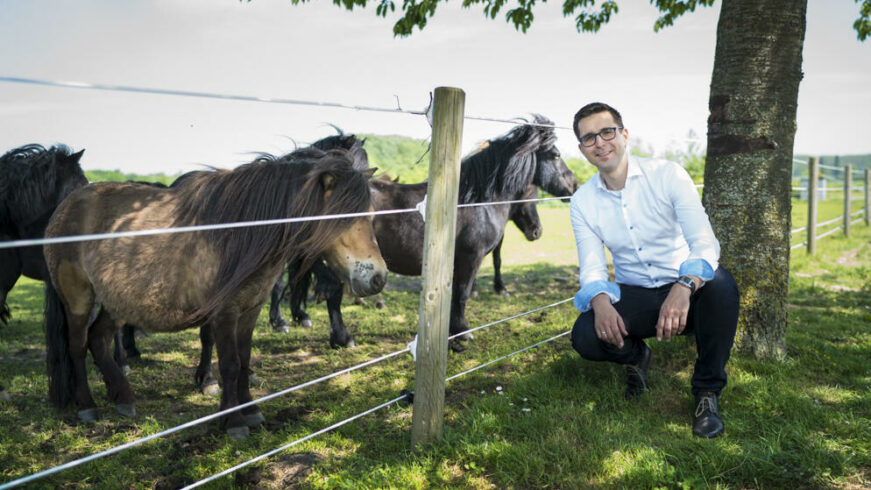Franck Meijboom is Associate Professor of Ethics of Human-Animal Interactions. The Masterclass Ethics of Animal Welfare at Elevate Academy will soon start under his leadership. Who is Franck Meijboom and why this course?
Could you briefly introduce yourself and tell us a bit more about what you are currently doing?
We live with millions of people in this world together with an even greater number of animals. This requires constant consideration and discussion. We live with a huge amount of animals. This often goes well and we find it important to live together with animals. Yet our interaction with animals also raises more and more questions. Such as “Are there limits to the usefulness of animals?” “How far can we adapt animals to our wishes?” or “How to deal with animal life and death?”. Ethics are important in dealing with people, animals and the environment in a careful way.
In my research and teaching I focus on these ethical questions and I look at animals in various contexts. For example, together with my team I have projects about animals in pests, animals in nature and agriculture, but also about animals that we have for companionship or use for research.
We look at the role technology plays, for example in monitoring animal behaviour or in animal breeding. Other projects focus on the role and responsibility of the veterinarian and considerations at the end of life of animals.
In all cases, my research is about providing insights and analyzing the moral background of questions about how we live with animals. Together with my team – often together with people from the field – we look for concrete answers.
When did you know you wanted to delve further into animal welfare and animal ethics?
More than 20 years ago I started as a researcher and teacher in ethics. I was working at the Faculty of Humanities at the time.
After a few years, in 2005, I became involved in ethics education for veterinary students. I thought it was an interesting area, where many questions from medical ethics came up in a different way, such as how long you continue to treat. But where also new questions arose, such as why animals count morally and how animal welfare is taken into account in an ethical consideration of new breeding techniques.
In 2008 I started working at the Faculty of Veterinary Medicine and from that moment on my work mainly revolves around animal welfare and animal-human interactions.
What are your main motivations?
I think it is important to understand the visions of others. That it is important to understand each other and also to have or to gain an understanding for each other. This does not mean we always have to agree; differences are very valuable. But especially for complex questions, such as questions about our interaction with animals, there are often no black and white answers whereby one person is always right and the other is always wrong. Dialogue is essential in this regard. This requires openness and the willingness to share arguments and to listen carefully.
My motivation is to promote and improve the conversation about the coexistence between humans and animals with my research and education. That is important for both humans and animals!
For whom is the online Master Course Ethics of Animal Welfare interesting?
I am convinced that veterinarians, as well as scientists, managers and policy-makers working in the field of animal welfare or care, will find the Ethics of Animal Welfare online course very useful. You learn to tackle ethical questions on both a theoretical and practical level.
The course consists of 4 online chapters, with a concluding live Masterclass at the end. What is special about the Masterclass?
The structure of the course offers a lot of room to learn and develop at your own pace. This is also important for ethics because ethical reflection requires time and rest in addition to knowledge and skills. However, ethics also means entering into a conversation with each other: exchanging arguments, sharpening your own vision and seeking new insights. That is what the Masterclass is intended for. After you have developed your own case during the 4-course classes, it is time to briefly present it during the Masterclass and discuss it with other participants and with me. And I will give feedback on that.
If you want to know more about the Masterclass Ethics of Animal Welfare, check Elevate Academy!



